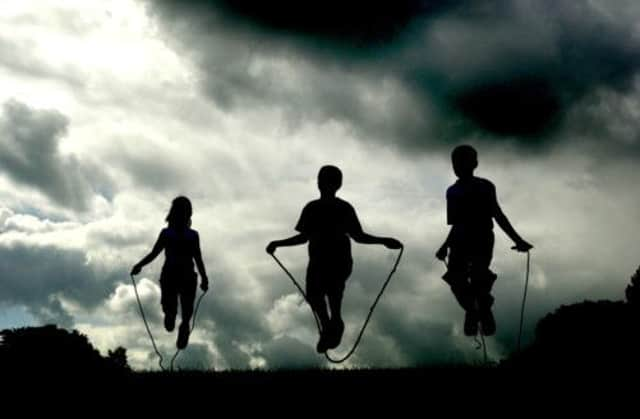Health fears as children’s hearts beat faster


A new study of more than 20,000 British nine to 11-year-olds found that their resting pulse rate may have risen by up to two beats a minute during the past 30 years. The researchers said that this was an indication of physical fitness and cardiovascular health and warned the increases could translate into higher risks of diabetes and heart disease in later life.
The research team used resting pulse rate measurements from almost 23,000 children, collected from databases such as the 1970 British Birth Cohort. They found that the average pulse rate was higher in girls at 82.2 beats per minute (bpm) than in boys (78.7bpm).
Advertisement
Hide AdAdvertisement
Hide AdBut the pulse rate rose consistently over the 30-year period for both sexes by an average of 0.04bpm every year. The annual rise was steeper among boys at 0.07bpm, particularly after the mid-1990s, than among girls where it stood at 0.03bpm. This meant an increase of 2bpm among boys and 1bpm among girls over the 30 years studied.
The researchers, who have published their findings in the Archives of Disease in Childhood, found during this period the average weight of the age group rose, and pulse rate is associated with body mass index (BMI) – a calculation of weight in relation to height. They said that the rise in resting pulse rate did not seem to be linked to the overall weight gain seen in the age group. They said this was possibly because BMI does not distinguish between lean and fat body mass. But the researchers said that a fall in the amount of physical activity among this age group and an increase in sedentary behaviour may have contributed to the rise. Both of these are associated with poorer physical fitness.
The researchers said: “Although modest, it is important to monitor these trends, especially in boys, as they appear to have increased at a faster rate in recent years.
“If an increase of 2bpm in mean resting pulse rate in boys persists to the adult population, this could result in a 4 per cent increase in coronary heart disease mortality among healthy men and a 2 per cent increase in risk of developing diabetes among the over-65s.”
Campaigners said the findings meant it was vital to increase activity levels in children.
Laura Hastings, Chest Heart & Stroke Scotland’s advice and information manager, said: “An inactive lifestyle is known to be a significant risk factor in the development of obesity, heart disease, stroke, and diabetes.
“While more research is needed, it is clear that we urgently need to tackle the lack of participation in regular exercise in young people if we are not to face even more acute health problems in the future.”
Christopher Allen, senior cardiac nurse at the British Heart Foundation, added: “Parents, schools and the local community can all play a role in encouraging kids to be active from a young age. Helping our children to enjoy exercise will increase their overall fitness and protect their hearts as they grow up.”
Advertisement
Hide AdAdvertisement
Hide AdCase study: The Meeks show daughters a bolder more active way of life
A couple who feared their children were spending too much time watching television and playing video games have completed 100 outdoor challenges in a year.
Kerry and Tim Meek were eager that their daughters Amy, ten, and Ella, eight, embraced the outdoors and did not end up as “couch potatoes”.
The couple from Arnold, Nottinghamshire, challenged the girls to complete a list of activities such as caving, cliff jumping and snow hiking.
Mr Meek, 44, said: “This is something we have been doing every weekend, regardless of the season. We started from scratch. Kerry and I are not very adventurous and as our kids have grown older we have wanted to give them that mindset that means they don’t want to sit in front of a TV or computer game all the time.”
The Meeks said they spent less than £500 completing their challenges.
“The most expensive tasks were going to London and visiting Paris while we were on holiday but all-in-all the 100 challenges cost less than £500”, Mr Meek said.
During the year, as word spread of their mission, they were invited to speak at adventure festivals across the UK. Mr Meek said of his girls: “It’s great for us as parents to see how they are becoming confident and independent through life experiences which are relatively cheap to do.”